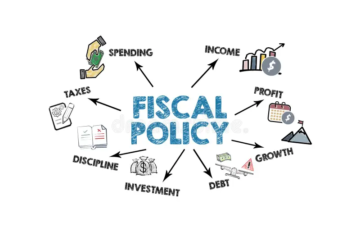Over the past few years, we have witnessed a rapid evolution in the banking industry, one of the most significant changes has been the emergence of financial technology, or fintech, which has been disrupting the traditional banking sector. Fintech refers to the use of technology to deliver financial services to consumers and businesses. The development of fintech has led to a transformation in the way financial services are provided, consumed, and managed. In this post, we will explore the impact of fintech on the future of banking.
The Rise of Fintech
Fintech has been gaining traction since the early 2000s, but it wasn’t until the financial crisis of 2008 that the sector really took off. The crisis exposed the inefficiencies and limitations of the traditional banking system, leading to a demand for more innovative and accessible financial services. Financial technology emerged as a solution to these problems, offering a new way of delivering financial services that was more efficient, convenient, and cost-effective.
Financial technology has been successful because it addresses the needs of consumers who are looking for more flexibility, convenience, and control over their financial lives. Fintech has also been attractive to investors because it promises to disrupt a highly regulated and profitable industry.
The Impact of Fintech on the Banking Industry
Fintech has had a profound impact on the banking industry. Traditional banks have been forced to adapt to the changing landscape, which has led to significant changes in the way they operate. Banks are now partnering with fintech companies to provide better services to their customers. These partnerships have allowed banks to leverage the latest technology to provide more efficient and cost-effective services.
One of the most significant impacts of financial technology on the banking industry has been the emergence of digital banking. Digital banking refers to the delivery of banking services through digital channels such as mobile and online platforms. Digital banking has become increasingly popular because it offers customers a more convenient and accessible way of managing their finances.
Another impact it has on the banking industry has been the emergence of new business models. Fintech companies are disrupting the traditional banking model by offering innovative solutions that are more tailored to the needs of consumers. For example, fintech companies are offering loans to consumers who have been rejected by traditional banks, using alternative data to assess creditworthiness.
Another benefit is that it provides more convenience and accessibility for customers. With financial technology, customers can access their accounts and manage their finances from anywhere, anytime. They no longer have to physically visit a bank branch or wait in long lines to conduct transactions. This level of convenience has made fintech services increasingly popular, especially among millennials and younger generations.
Another significant advantage is its ability to reduce costs for banks. Traditional banking methods require significant overhead costs for maintaining physical branches, staffing, and equipment. With financial technology, banks can reduce these costs and pass on the savings to customers. This has led to the emergence of online-only banks, which offer lower fees and higher interest rates than traditional banks.
The Future of Banking
Fintech is changing the face of banking, and the future of the industry is likely to be shaped by fintech innovations. The traditional banking model is no longer sustainable in a world where consumers demand more flexibility, convenience, and control over their finances. Banks that fail to adapt to this new reality risk becoming irrelevant.
The future of banking is likely to be characterized by more partnerships between banks and fintech companies. Banks will need to leverage the latest technology to provide more efficient and cost-effective services to their customers. Fintech companies will continue to innovate, developing new solutions that address the needs of consumers who are looking for more flexible and accessible financial services.
Fintech has also made it possible for banks to offer a wider range of services. Traditional banks were limited in the services they could provide, but fintech has opened up new possibilities. Banks can now offer personalized financial advice, wealth management services, and investment opportunities. These services were previously only available to high-net-worth individuals, but fintech has made them more accessible to the general public.
The rise has also led to increased competition in the banking industry. Financial technology companies are challenging traditional banks, forcing them to innovate and improve their services. This competition is good for consumers, as it leads to better products, lower fees, and higher-quality customer service.
One of the most significant areas of financial technology innovation is in mobile banking. Mobile banking has become increasingly popular, with over 60% of Americans using mobile banking services. Fintech companies have developed mobile apps that allow customers to access their accounts, transfer money, pay bills, and even apply for loans. These apps are user-friendly and provide a seamless banking experience.
Another area of innovation is in payment systems. Fintech companies have developed payment systems that are faster, more secure, and more efficient than traditional methods. These payment systems use blockchain technology, which is a secure and decentralized ledger that ensures transparency and eliminates the need for intermediaries. This technology has the potential to revolutionize the way we make payments and could eventually replace traditional payment methods like cash and credit cards.
The future of banking is undoubtedly tied to fintech. It has already transformed the banking industry, and it will continue to do so in the years to come. Banks that fail to adapt to this new reality will be left behind, while those that embrace fintech will thrive.
Conclusion
Fintech has had a significant impact on the banking industry, and the future of the industry is likely to be shaped by fintech innovations. Traditional banks are being forced to adapt to the changing landscape, and the emergence of digital banking and new business models is transforming the way financial services are provided and consumed. As fintech continues to evolve, we can expect even more exciting developments that will transform the way we bank and manage our finances.

















